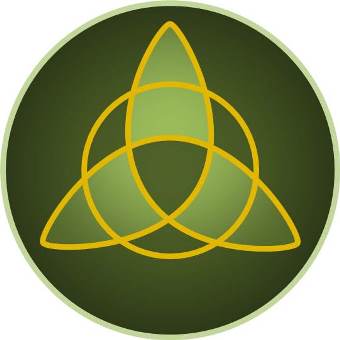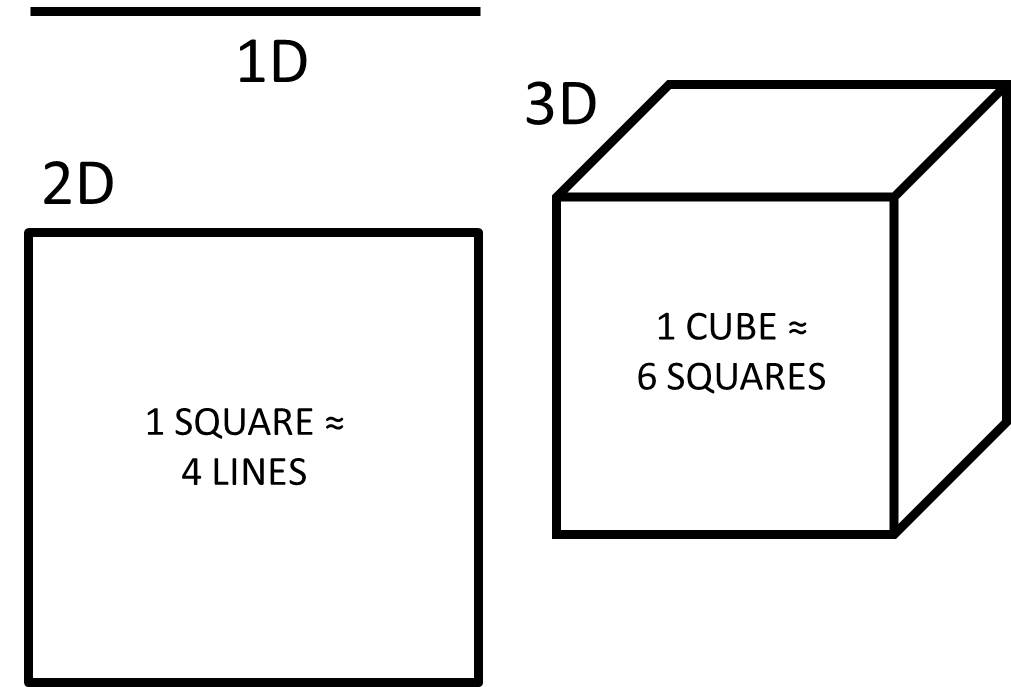THE THEOLOGICAL ENGINEER
Tripping over the Trinity
By Jeff Laird

Too often, these concerns are brushed off by calling the Trinity a "mystery", as though it was beyond reason and beyond question, period, end of story. Yet most objections are resolved through a clear explanation of what the Trinity is, and what it is not. It's not so far beyond our understanding that our only recourse is using "mystery" to avoid the subject entirely.
That being said, mystery can't be totally eliminated from our apprehension of the Trinity. Some aspects of God's nature are difficult for finite human beings to fully comprehend. Music exists, even if ants would consider it a "mystery". When all is said and done, the Trinity is a Biblically sound doctrine, and it helps us makes sense of other observations in the universe.
First, we must understand what the Trinity is. God is one being, composed of three persons: The Father, The Son, and The Holy Spirit. These three persons are identical in essence, and identical in nature, but distinct—not separate—and fulfill individual roles within the unified being. C.S. Lewis explained the Trinity by referring to different dimensions. He noted that in one dimension, a person can only create lines. In two, they can create squares. In three, they can create cubes. For a two-dimensional being, it's hard to see how six squares can be "one" of anything, but in three dimensions, a cube is a unification of six squares. This is analogous to the human level vs. the divine level, where three persons are one being, without contradiction. Geometry isn't the same as theology, of course, but the analogy is helpful.

It's also important to emphasize what the Trinity is not. God is not three beings in one being, or three persons in one person. Nor is God three deities cooperating as one, or one God acting through three different offices at different times. The Trinity is not God elevating one of His creations to godhood. Nor is it One God splitting Himself into parts at various times. The Trinity does not imply that 1+1+1=1, but that 1x1x1=1.
With that context, we can respond to some of these common difficulties:
In John 14:28, the Father acts in a higher position of authority within the Trinity than the Son. In particular to this verse, the Father is not suffering the humiliation of sacrifice that the Son, Jesus, is. They still share the same essence, as noted in the same book (John 1:1-2, John 14:9, John 20:28).
When the rich young man approached Jesus and called Him good (Mark 10:17-22, Luke 18:18-23), Jesus did not deny that He was God. Rather, Jesus was questioning the young man's motivations. Jesus' reply, in essence, was, "are you calling me God?" If this young man thought Jesus was God, then he ought to listen and obey. If not, then why ask? The young man's discouraged response to Jesus' teaching showed what his real motivations were. Jesus often used counter-questions such as this to expose the assumptions people were depending on.
Because God is a Trinity, Jesus, The Son, can still pray (Matthew 26:36). There are other persons within that one being that can commune with each other. This, by the way, is one areas where the Trinity helps make sense of the universe. We have a diversity of particles, forces, species, and systems, yet a unity of action. How did the universe come to have both unity and diversity? How could God understand things like love, communication, or obedience, if there was no "other" prior to creation? Logically, God could not have experienced any of those without an "other". A Triune God not only explains why we see unity and diversity in nature, it also means God didn't need to create in order to know what relationships and conversations and submission meant! So, Jesus' prayers to the Father are part of the normal communication of the Trinity.
The word "begotten" is an old English word that's confusing in modern English. For this reason, many Bible translations use the phrasing "one and only Son" (John 3:16). The English word "begotten" does seem to imply a temporal origin for Jesus, which is not what the Biblical authors intended, either in Hebrew or Greek. The Greek word is monogenes, with a hard "g", which literally means "of the same nature, kind or sort," another textual proof of the Trinity.
In Matthew 24:26, Jesus speaks of His limited knowledge form the perspective of His humanity. The Son voluntarily limited His use of His divine attributes while on earth. This allowed Him to learn and grow (Luke 2:52), to be hungry (Matthew 4:2), and tired (John 4:6), and to be physically abused (John 18:4-13). This allowed Him to fully identify with the human condition (Hebrews 4:15). Much of what Jesus says about the knowledge of the Father as compared to the Son comes from this perspective.
In Matthew 10:23, Jesus speaks of the right or left, again, from the perspective that the Father has a higher authority within the Trinity. Further, He's reminding the disciples that honors and rewards are not the purpose of His earthly ministry. Those are determined at the final judgment based on a believer's deeds.
References to the Trinity being "mysterious" are somewhat legitimate, in that we'll never fully understand everything about God. It's normal to struggle with some of these questions, but answers are not completely beyond our grasp. The Trinity is a profound concept, one that not only makes sense of our world, but of the God who made it.
Image Credit: Kersley Fitzgerald
Tags: Theological-Beliefs
comments powered by Disqus
Published 11-18-13

